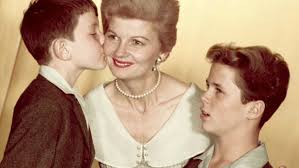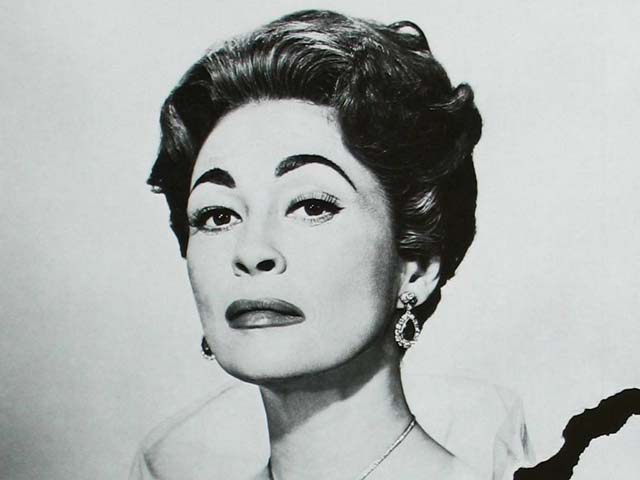I realized something for the first time when my kids were of an age for sleepovers and birthday parties: dads are funnier than moms.
I might have noticed it in my own house if it wasn’t right under my nose. My husband was the one to get on the floor and wrestle, start sock fights, and make jokes when it was time to get serious. That’s not to say I could never be found on the floor with kids crawling all over me, but there’s something different about mommy wrestling as opposed daddy wrestling–a certain lack of abandon and goofiness. My daughter would come home from a party or church event with stories about how Cheri’s dad had made them laugh while driving them to the skating rink, or how Leslie’s dad had played a stupid trick that backfired. It was never the moms. Mothers could certainly be fun (I’d like to think I was. Maybe. Sometimes.), but seldom funny.
Several years ago, the late comedian Jerry Lewis made a controversial statement when asked about his favorite female comics . His answer: None, because women aren’t funny. That raised a stink among women, many of whom seriously protested that they were funny—which kind of proved his point, in a way. I would say that women aren’t funny in the same way. They can be witty (as my mother was), clever, sharp, catty, artless, or charming, but there’s a reason male standup comics far outnumber females, and it doesn’t have much if anything to do with discrimination. Of those few successful female comedians (as opposed to comic actors), most of them are known for the mordant kind of humor: the biting, even bitter kind. It’s because women, more than men, have a tragic view of life. And that’s because of one thing: women have babies.
I will surely multiply your pain in childbearing; in pain shall you bring forth children. (Genesis 3:16)
The Pain

The most common and obvious interpretation of this verse limits the pain to labor and delivery. But the pain of bearing a child lasts a lifetime, and it’s a particular pain that fathers do not share. We’re not supposed to mention it these days, but the peculiar pain of motherhood owes to some essential differences between moms and dads:
- Fatherhood is by choice; motherhood by necessity.
- Fatherhood is dogmatic; motherhood is organic.
- Fatherhood is straightforward; motherhood is serpentine and multi-faceted.
- Fatherhood is tangential; motherhood is central.
- Fathers are distinct; mothers are intimate.
At the back of a mother’s mind lurks a gigantic fear that something could happen to her baby, even if her baby is 45 years old. The world yawns wide for our children: busy streets and nefarious strangers, fast cars and bad company, drunk drivers, sexual predators, drug dealers, gang leaders. A good father will experience these same fears, but probably not until there’s some pretext for them (no what-if speculations for Dad), and not in the same gut-wrenching way if they occur.

Also, from the day our babies are born we have to start letting go of them, and sometimes it’s hard to know when. And how. It isn’t just a matter of teaching them to crawl, walk, run, and drive; it’s teaching ourselves to stop identifying with them. They were us; how can they stop being us? When does their behavior stop being our responsibility? When do their choices no longer reflect on our child-raising skills?
The Gain
And yet, a great irony: The more a mother clings to her child, the smaller motherhood becomes. The true joy of mothering increases with every step your child takes away from you. Conceiving, carrying, bearing, and delivering a baby into this world is the beginning of the pain, but also of the gain: a mature human being with his or her own personality, gifts, and vision. That’s the goal, and I challenge anyone to name me a better one. No six-figure income or tabloid-worthy career even comes close. Motherhood is a double investment in life: the opportunity to grow up again by experiencing its primary discoveries through the eyes of a child and the understanding of a grownup, and the chance to pay it forward with a human being who will make the world a slightly better place.
If your grown child causes you more grief than joy (and a lot of them do), first check your expectations to make sure you’re not looking for Mini-me: someone who thinks and acts as you do and agrees with 95% of your political and theological positions. (If you actually ended up with a kid like that, you’re either very exceptional or your son or daughter got swapped for a robot somewhere down the line.)
But say your expectations were reasonable and your child-raising skills were at least adequate. What went wrong? Maybe nothing; maybe it’s time to let disappointing children become themselves, and answer for themselves. Trust God with them. They are still human beings with immortal souls. Yours will always be the first warm touch they felt, the first loving voice they heard. You pushed them out and raised them up—this is the great human enterprise, and mothers are right in the middle of it.
That’s not funny. But it’s phenomenal.


Interesting insight into mom and dads and male and female comedians. I have noticed that men, whatever they do, they are known for what they do: write, act, etc…women are identified by the fact that they are a woman doing it. In the same way minorities or homosexuals are identified by by their color or orientation rather than by the quality of what they do.
And it seems the women, minorities and so on, seem to accomplish their objectives through that lens.
I think that there are a lot of reasons, but a lot of it is that the people who want to succeed in certain arenas, especially in show biz, have to make their act about having a certain identity. The gatekeepers only publish writings about women who have a certain feminist slant.
That’s a little off topic, but that is what your post got me thinking about.
Now I have to say in my household growing up, my mother was the warm, supportive nurturer. My dad was too, but I didn’t recognize it until I was older because his communication skills were, well, non-existent. Even today when I call my parents, my dad gets off the phone as quickly as possible so I can talk to my mother for an hour or so.
Yet I know he loves me as much as my mother. He showed God’s justice and authority. My mother showed God’s intimate merciful side.
I had the same kind of mom/dad communication dichotomy too, Sharon. I think it largely hold true across the board, although there are always exceptions.
This is the best article you’ve ever written. Thanks Janie! Have a great Mother’s Day!?
Thanks, Sharon!